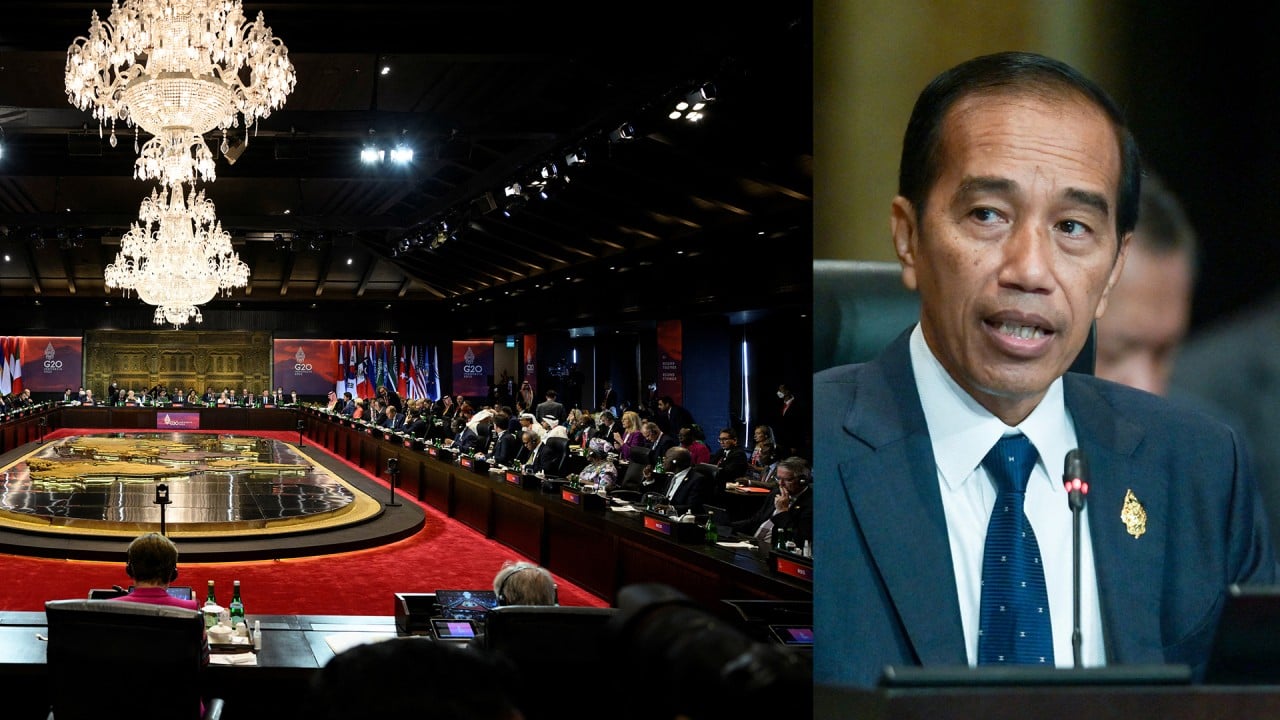
China’s Qin Gang seeks to cool Indian tensions at G20 amid intensifying US stand-off
- The foreign minister travels to India this week, with Ukraine war looming over meeting of top diplomats
- Beijing sees New Delhi as ‘swing country’ in US-China rivalry, but simmering border dispute remains an obstacle, analysts say
Chinese Foreign Minister Qin Gang will attend a G20 gathering in New Delhi on Thursday, in his first official visit to India as Beijing seeks to mend ties with its Himalayan neighbour.
Russia’s invasion of Ukraine and soaring tensions between China and the United States are expected to dominate the Delhi meeting, which will also be attended by Russian Foreign Minister Sergey Lavrov, US Secretary of State Antony Blinken and senior diplomats from 40 countries.
“China stands ready to work with all parties to ensure that the G20 foreign ministers meeting will send a positive signal on multilateralism, food and energy security and development cooperation,” she said in Beijing on Tuesday.
Without referring to strained US-China ties, an official readout said the country “must be prepared to withstand the great test of high winds and even rough seas” as China entered “a period of strategic opportunities and risks and challenges”.
While Qin – China’s former ambassador to the US who was promoted to foreign minister two months ago – was expected to have a one-on-one with his Indian counterpart S. Jaishankar, it was not clear if he would have separate meetings with Blinken or Lavrov.
“It is an important move for bilateral ties and although it’s impossible to see a breakthrough in their border disputes any time soon, it will at least help repair their damaged ties and stabilise the situation near the disputed areas,” he said.
It was the first face-to-face talks since July 2019 for the Working Mechanism for Consultation and Coordination (WMCC) on China-India Border Affairs, led by Hong Liang, the chief of the foreign ministry’s boundary and oceanic affairs department, and his Indian counterpart Shilpak Ambule.
Like numerous other diplomatic and military talks over the past three years, the two sides exchanged views in “an open and constructive manner”, with New Delhi insisting that disengagement of border troops should come before restoration of normalcy in bilateral ties.
The 31-month border stand-off has taken a heavy toll on bilateral ties. When Qin’s predecessor Wang Yi made a surprise visit to New Delhi in March last year, the first since the 2020 clash, he failed to secure a meeting with Indian Prime Minister Narendra Modi.
And while both Beijing and New Delhi remain ambivalent about Russia’s invasion of Ukraine, China’s repeated efforts to capitalise on India’s divergence from the US over the war have so far failed to stem the deterioration in bilateral ties.
Both China and India abstained last week from a United Nations General Assembly vote demanding that Russia immediately and unconditionally withdraw its troops from Ukraine.
At a G20 gathering of financial chiefs in Bangalore last week, China helped Russia block a joint communique condemning Moscow’s aggression.
According to Wang Dehua, Modi’s government appears to partly share Beijing’s concerns and also wants to avoid having the Ukraine crisis dominate the G20 gatherings this year, which could give Beijing an opportunity to seek common ground with Delhi.
Citing various Indian officials, Reuters also reported last week that although Western countries wanted to use the G20 to rally support for further sanctions against Russia, Delhi was reluctant to play along because of the negative global impact of existing sanctions.
But Wang also cautioned that with the border dispute remaining the top challenge for bilateral ties, it would be difficult to expect to see rapid improvement in those relations.
“While Beijing still sees Delhi as a swing country in the US-China rivalry, Delhi is actively trying to forge partnerships with various countries, including the US, the UK, Japan, and other Western powers [to counterbalance China],” he said.
Apart from the border disputes, bilateral ties were also marred by India’s joint military exercise with the US near the disputed China-India border, and its participation in the US-led Quad, a security alliance with Australia and Japan targeting China.
Meanwhile, Japanese Foreign Minister Yoshimasa Hayashi looked set to skip this week’s G20 meeting due to a scheduling conflict over a parliamentary session he was required to attend, according to Kyodo. Japan will host the Group of Seven summit in Hiroshima in May.
It remained unclear, however, if Hayashi would attend a gathering of foreign ministers of the Quad nations on Friday.



